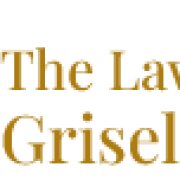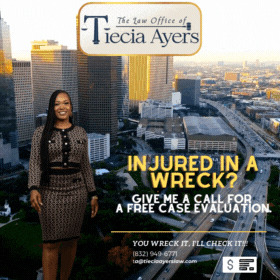Best Brain Injury Lawyers in Texas
Share your needs with us, get contacted by law firms.
Free. Takes 2 min.
Or refine your search by selecting a city:
List of the best lawyers in Texas, United States
About Brain Injury Law in Texas, United States
Brain injuries are among the most serious and complex injuries a person can experience. In Texas, brain injury law refers to the legal considerations and protections that arise when someone suffers a traumatic brain injury (TBI) or acquired brain injury (ABI) due to another party's actions or negligence. These injuries can happen as a result of car accidents, slip and fall incidents, workplace mishaps, sports injuries, or even medical malpractice. The impacts can be life-altering, often affecting not just the injured individual but also their family members. Texas law provides legal avenues for victims to seek compensation for medical expenses, lost wages, pain and suffering, and future care needs. Successfully navigating a brain injury claim in Texas can be challenging, making a basic understanding of relevant legal principles essential for anyone affected.
Why You May Need a Lawyer
Brain injury cases often involve complicated legal and medical issues, and the stakes are high due to the long-term effects and extensive costs associated with rehabilitation and ongoing care. You may need a lawyer in Texas for brain injury claims in these situations:
- You or a loved one suffered a brain injury due to someone else's negligence, such as in a car or truck accident.
- A brain injury resulted from a workplace accident where the employer or a third party may be liable.
- The injury occurred in a public space, such as a slip and fall in a store or other business establishments.
- You suspect medical malpractice or failure in duty of care during a medical procedure that led to brain injury.
- You are having difficulty obtaining fair compensation from insurance companies or facing claim denials or settlement offers that do not reflect the full extent of your damages.
- The responsible party disputes their liability or the extent of the injury.
A knowledgeable brain injury lawyer can assist with gathering evidence, calculating damages, handling negotiations, and representing your interests in court if needed.
Local Laws Overview
Texas law sets out specific rules and standards for brain injury claims, centered around the broader framework of personal injury and medical malpractice statutes. Key aspects include:
- Statute of Limitations: In general, you have two years from the date of the injury to file a lawsuit for personal injury in Texas. Delaying beyond this time frame can forfeit your right to compensation in most cases.
- Comparative Fault System: Texas follows a modified comparative fault rule, meaning your compensation can be reduced if you are found partially at fault for your injury. If you are more than 50 percent at fault, you may not be able to recover damages.
- Damages: You may seek compensation for medical bills, lost earnings, loss of future earning capacity, pain and suffering, mental anguish, and costs related to ongoing care or adaptive services.
- Medical Malpractice Caps: For brain injuries caused by medical negligence, Texas law places caps on non-economic damages (such as pain and suffering).
- Premises Liability: Property owners and businesses must ensure reasonably safe conditions for visitors. Failure to warn about known dangers or remedy hazards can result in liability for resulting injuries, including brain injuries.
- Insurance Requirements: Many brain injury claims involve negotiations with insurance carriers for settlements. Texas has minimum insurance requirements for drivers and other parties but often, actual damages exceed policy limits, particularly for severe brain injuries.
Given the complexity of these laws, legal guidance is often necessary to maximize a claim and protect the injured person's rights.
Frequently Asked Questions
What is considered a brain injury under Texas law?
A brain injury can refer to any injury, damage, or dysfunction to the brain, often classified as traumatic (such as from a blow to the head) or acquired (such as from lack of oxygen or medical error). Both types can lead to significant legal claims if negligence is involved.
How do I know if I have a valid brain injury claim?
You generally have a claim if you can show that another party's actions or negligence caused your brain injury and that it resulted in damages (like medical bills, lost wages, or pain and suffering).
What should I do after a brain injury in Texas?
Seek immediate medical attention, document your injuries and accident details, collect witness information, and consult a lawyer experienced in brain injury cases before discussing your claim with insurance providers.
How long do I have to file a lawsuit for a brain injury in Texas?
Texas law typically gives you two years from the date of the injury to file a personal injury lawsuit, though there are exceptions in some cases.
What types of compensation might be available in a brain injury case?
Compensation may cover medical expenses, rehabilitation costs, lost earnings, loss of future earning ability, pain and suffering, mental anguish, and in some cases, punitive damages.
Can I still recover damages if I was partly at fault for my brain injury?
Yes, Texas follows a modified comparative fault system. If you are found 50 percent or less at fault, your compensation will be reduced by your percentage of fault. If you are more than 50 percent at fault, you likely cannot recover damages.
Are there special laws if the injury happened at work?
Workplace brain injuries may involve workers' compensation claims, but if third party negligence is involved or if your employer lacks proper coverage, civil lawsuits may also be possible.
Do I need an expert to prove my brain injury case?
Often yes. Medical experts are usually needed to demonstrate the nature, cause, and long-term impacts of traumatic brain injuries, especially in court.
How are brain injury settlements or verdicts determined in Texas?
Settlements and verdicts consider factors like the severity and permanence of the injury, costs of past and future care, lost income, impact on quality of life, and fault of the parties involved.
Will my brain injury case have to go to court?
Many cases are settled through negotiation or mediation but some cases, especially those involving disputed liability or large damages, may go to trial.
Additional Resources
The following organizations and resources may be helpful if you or a loved one is dealing with brain injury in Texas:
- Texas Department of State Health Services - Traumatic Brain Injury (TBI) Programs
- Brain Injury Association of America - Texas Division
- Texas Legal Services Center
- Local Bar Associations Lawyer Referral Services
- Texas Workforce Solutions Vocational Rehabilitation Services
- Area hospitals and rehabilitation centers specializing in brain injury recovery
Next Steps
If you or someone you care about has suffered a brain injury in Texas and you believe someone else may be at fault, consider taking the following steps:
- Prioritize medical care and follow your healthcare provider’s treatment recommendations.
- Document the circumstances of the injury, your symptoms, and how the injury has impacted your life.
- Gather any information about the incident, such as photos, police reports, insurance communications, and witness contacts.
- Reach out to a Texas-based attorney who specializes in brain injury or personal injury law. Many offer free consultations to review your case.
- Avoid accepting initial settlement offers or signing documents from insurance companies until you have spoken with a lawyer.
- Continue to keep records of your recovery, expenses, and correspondence related to the injury.
Getting legal advice as soon as possible helps ensure your rights are protected and increases the likelihood of securing the support and compensation you need for recovery.
Lawzana helps you find the best lawyers and law firms in Texas through a curated and pre-screened list of qualified legal professionals. Our platform offers rankings and detailed profiles of attorneys and law firms, allowing you to compare based on practice areas, including Brain Injury, experience, and client feedback.
Each profile includes a description of the firm's areas of practice, client reviews, team members and partners, year of establishment, spoken languages, office locations, contact information, social media presence, and any published articles or resources. Most firms on our platform speak English and are experienced in both local and international legal matters.
Get a quote from top-rated law firms in Texas, United States — quickly, securely, and without unnecessary hassle.
Disclaimer:
The information provided on this page is for general informational purposes only and does not constitute legal advice. While we strive to ensure the accuracy and relevance of the content, legal information may change over time, and interpretations of the law can vary. You should always consult with a qualified legal professional for advice specific to your situation.
We disclaim all liability for actions taken or not taken based on the content of this page. If you believe any information is incorrect or outdated, please contact us, and we will review and update it where appropriate.
Browse brain injury law firms by city in Texas
Refine your search by selecting a city.















